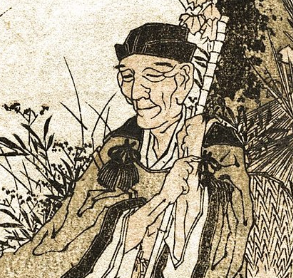Happy Sunday! Today, we will dissect one of Basho's most famous poems. So, grab a cup of coffee and let's dig in!
----
But first, a recap on the week
All free except the new Makoto issue!
- THURSDAY: New podcast: Beginning Japanese Phrases Podcast 85: ~で ~de – And… [BEGINNERS]
- THURSDAY: New Makoto Issue #52 + Japanese Memes eBook Bonus - Makoto+ members, log in to your members area.
- WEDNESDAY: UPDATE: Why is 死んでいる not “dying”? A look at the famous internet meme お前はもう死んでいる! (omae wa mou shindeiru!) [BEGINNERS-UPPER BEGINNERS]
- MONDAY: JLPT N4 Vocabulary Pages - got a start on this! [UPPER BEGINNERS]
- MONDAY: New podcast: Nihongo no Tane 87 ママは心配 Mother is Worried | Japanese Immersion Podcast [INTERMEDIATES]
School ended this week for our children and, well, we weren't able to publish many new lessons. Next week, we will be out of town a little, but we should have a brand new Anime line breakdown (from 千と千尋の神隠し Spirited Away) on Monday.
----
And now, today's Sunday Haiku:
Today's haiku is by 松尾 芭蕉【まつお ばしょう】. Matsuo Basho (1644-1694) is the most famous of the classical haiku poets, and today's haiku is one of his most well-known in Japan.
Makoto+ Shogun or Lifetime members, click here for today's haiku with sound and almost 100 other haiku lessons. (Not yet a member, let's fix that!)
Haiku lesson
Let's get right to it.
閑さや 岩にしみ入る 蝉の声
VOCABULARY
- 閑さ quietness; stillness [閑か (quiet; silent; slow; unhurried; calm; normally written with the か as okurigana) + さ (a normalizing suffix that indicates degree or condition like ~ness: stillNESS)]
- や (切れ字【きれじ】 or "cutting word" which typically appears at the end of a line or phrase to set the haiku rhythm of 17 moras (5-7-5))
- 岩に into the rock [岩【いわ】 is used for large rocks; 石【いし】 is used for smaller rocks or rocks in general; the に shows the direction of the action is (in)to the rock]
- しみ入る to absorb into; to soak; to penetrate [入る【いる】 is often used in compound verbs to add the meaning of "go into."]
- 蝉の声 voice of the cicada; the sound of the cicada [Cicada are very loud in the summer in Japan; they seem to be everywhere at times; the の limits the information: not just any voice but the voice of a cicada]
季語【きご】 Season Word
What is the 季語【きご】? It is 蝉 [せみ] (cicada) which means the season is summer.
Clay's Interpretation
Wait, the season word is cicada but the haiku starts with "silence" or "quiet." Cicadas are anything but quiet.
Yes, this contrast is partly why the haiku is so famous. Haiku is often like this: subtle and open to interpretation.
Basho wrote this poem at a secluded mountain temple. The cicadas are so loud their sounds seep into the rocks, but—BUT—the peaceful serenity of the temple and the unspoiled mountain forest is deeper and more powerful. The cicadas powerful trilling penetrates deep within the rocks; even so, the quiet tranquility in Basho's heart silences the noise.
I think this poem is about finding a sublime peace within yourself despite the troubles around you. Think of someone absorbed in a book or fully concentrating on a math problem. There may be bustling activity around that person, but within, there is a quiet stillness.
I (Clay) occasionally go to a coffee shop to work. I don't go because it is quiet, I go because it isn't. The noisy, bustling activity helps me concentrate on my work since I am not responsible, in the least, for what's going on around me. I can focus.
Want to give this a try without leaving the comfort of your computer? Put your headphones on and go to this website: https://mynoise.net/NoiseMachines/cafeRestaurantNoiseGenerator.php
See? Instant concentration. Basho had a point. Don't forget to bookmark that website!
Yumi's Interpretation
Yumi sees this as a "get-away-from-it-all" poem.
Yes, the cicada are loud, but it is a natural kind of loud. Human-made noise is a different kind.
Journeying to the secluded serenity of the mountain temple calms the poet's heart. Even though nature is loud, the "unnatural" noise is gone. Therefore, he experiences inner peace and silence.




